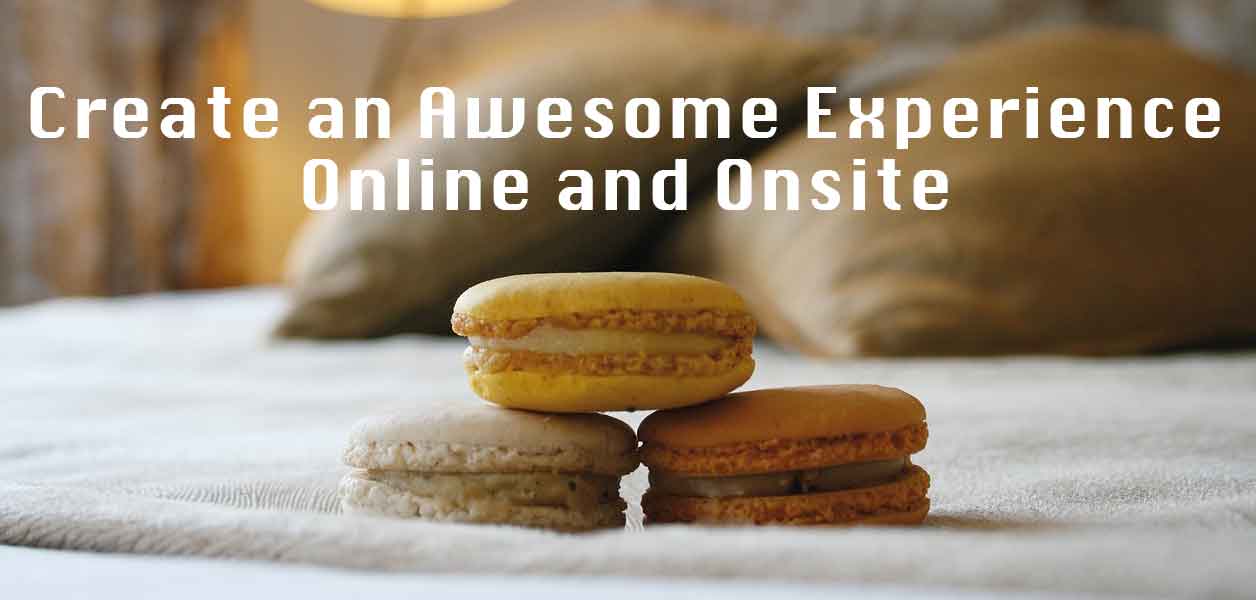Five Reasons to Create a Strong Lodging Website
 1. Online Channel Conversion
1. Online Channel Conversion
2. Reduce Risk of 3rd Party Channels
3. A Strong ‘Virtual’ Presence
4. Controlled Marketing Environment
5. A Measurable Financial Asset
Over 80% of travel is now booked online, with 51.8% booked on mobile devices. These statistics are rising daily. It is vital that lodging owners understand the structure they need for successful online marketing. That online structure is your website.
Online Channel Conversion
Online bookings begin with your potential visitor starting an online search for where they want to go or stay. Your business’s online presence might include digital media channels like TripAdvisor, Facebook, Twitter, Pinterest, Expedia, FlipKey, and Instagram. If setup correctly, all channels will move the online visitor to your website where they might learn more about your property and then ultimately book a room.
Reduce Risk of Dependence on 3rd Party Marketing Channels
It is important to understand that while Facebook, Twitter, TripAdvisor, and Expedia might bring you valuable bookings, they do not necessarily have your best interest in mind. In fact, the opposite is true. Quite simply, when a guest books on your website you make the most money. All of those channels want a piece of that, and they are all getting better at figuring out how to get a piece of the pie. Your pie.
Resist the urge to let them do all the marketing for you. You need to fight for the control, not relinquish it. No matter what changes with social media channels or OTAs, if your strategy is to have a strong website and bring everyone to that website from all channels consistently, you limit your dependence and minimize the risk.
Create a Strong ‘Virtual’ Presence
Your website is the virtual representation of your property. It needs the same thought, care, and attention that your physical property receives. Your goal is to get that same delighted response from your website as you receive when someone walks in your door. You also want your newly arriving guests to feel that they have already become acquainted with your lodge or hotel online and that what they’ve gleaned from your website matches their physical impression and experience.
A Safe Place to Experiment with Marketing
You’ve seen offers like, “Get your free review widget from TripAdvisor” when working online. This trend is growing with all 3rd party channels employing a strategy to outfox lodging owners by convincing them to embed links to their websites. I’ve seen many lodging owners use these widgets, with the good intention of being proactive in their marketing. But little do they know, that once those links are clicked by a web visitor, the forwarding website takes the opportunity to market directly to that web visitor. They often do that by cross marketing to your competitors. Why do that? Keep them at your secure basecamp.
If you employ the strategy of keeping your web visitors on your site, then instead of sending them to unsafe places where they might get lost, you can test new ways of attracting and securing their attention and creating a personal connection. Evolve the web customer experience, right on your website. Then hone your messaging to convince these visitors that, in fact, your place IS the best place to stay.
A Measurable Financial Asset
While having a presence on the 3rd party channels is important, you do not own these profiles. A well-developed website has a measurable value that can be included in your property’s list of financial assets when selling or assessing the value of your lodging business. You own it. Creating a marketing presence online is a time-consuming, expensive investment. Why not invest in something you own? For this reason, alone, it makes sense to put 80-90% of your online efforts and money into your website. Don’t skimp here. Pay yourself first.
At each step of the relationship with your hotel and potential visitors, your website must strategically provide the information they desire, offer an opportunity for you to engage with them and finally persuade them to stay at your property. Then come back on future travels. Yes, a strong website should also engage post-stay guests, but that’s for a different blog, different day.
Updated from the original post published: Sept 12, 2015

